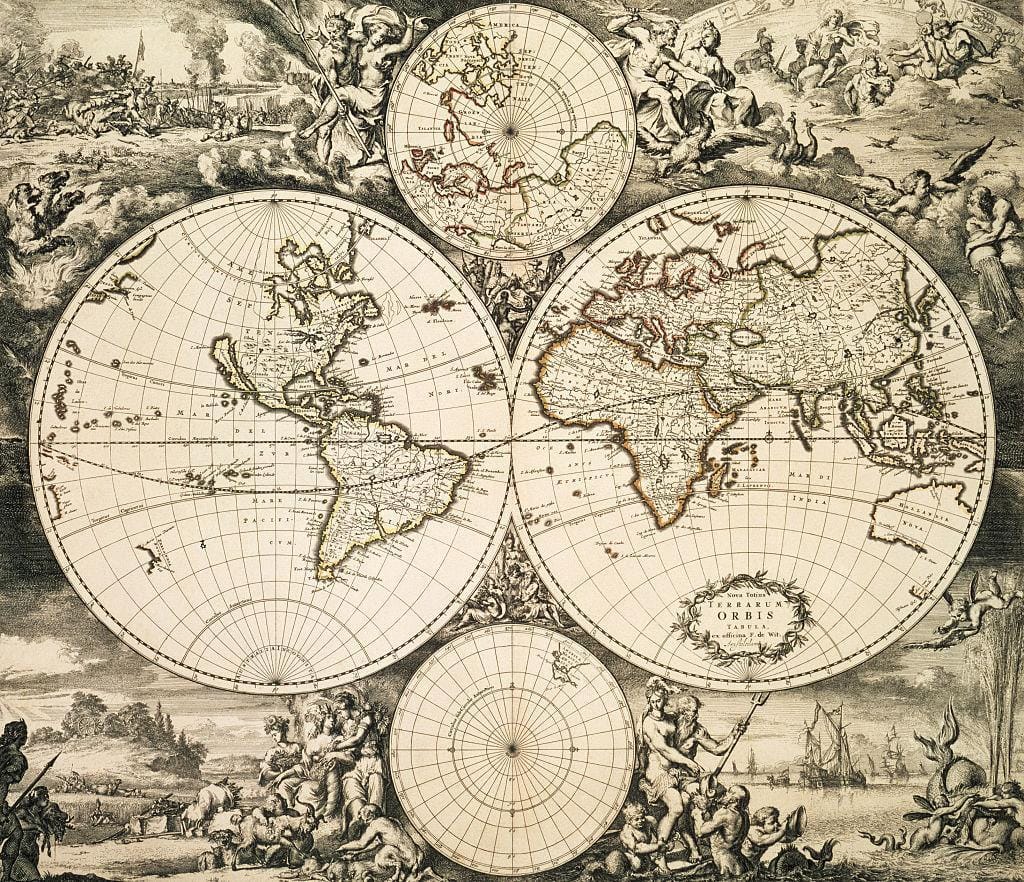Chinese Explorers May Have Beat Columbus to America
Many people believe that Christopher Columbus was the first person to discover the Americas or the “New World” as he called it.
However, new information has come to light that suggests there may have been several other explorers from countries such as China to find these continents long before Columbus ever sailed across the sea. Despite China’s history of unearthing new discoveries, some historians question the legitimacy of this claim.
The Mysterious Chinese Map
This interesting conversation began in earnest when Chinese lawyer Liu Gang revealed a map he found in a bookshop in Shanghai.

Source: APIC/Getty Images
He claimed the map was proof that Chinese explorer Zheng He had originally discovered the Americas in 1418, about 50 years before Columbus arrived.
Significance of This Discovery
The map recovered is supposedly an 18th century copy of Zheng He’s original map made during his 15th century explorations.

Source: Alamy
And unlike other maps from that time, Zheng He’s map shows both North and South America and even Australia and Antarctica
So, Who Was Zheng He?
While it’s surprising that such an ancient map of the world exists, it is more believable since the apparent cartographer was none other than the famous Chinese explorer, Zheng He.

Source: Britannica
Zheng He lived from 1371 to 1433, and during his life, the Chinese Muslim eunuch spent the majority of his life on the sea exploring far away lands.
For Years, Many Believed Zheng He Only Explored the Far East
According to the records, Zheng He spent from 1405 to 1433 sailing around the Indian and Pacific Oceans, though until this map was found, most historians believed he never made it as far west as the Americas.

Source: Britannica
However, one man now believes that Zheng He absolutely did discover the Americas in the early 1400s and he even wrote an entire book about his geographical theory.
‘1421: The Year China Discovered America’
Gavin Mezies is a British submarine lieutenant commander-turned-author who famously wrote the book 1421: The Year China Discovered America.

Source: Amazon
In the book, Menzies explains that the Chinese explorer found the Americas in 1421. And although technically, the Zheng He map was dated 1418, he believes it is concrete evidence to support his claim.
Many Argue the Map Has Been Misdated
While some, such as Menzies, believe that the newly discovered Zheng He map proves that the Chinese explorer found the Americas, others say it doesn’t verify anything.

Source: APIC/Getty Images
One historian at Zhejiang University, Gong Yingyan, states that the map has far too many anachronisms and absolutely could not have been made during the 15th century.
The First Clue That the Map Isn’t What it Seems
Yingyan argues that the style of the map, a dual-hemispheric and flat three-dimensional globe, wasn’t used until much later in Europe, making the design the first clue that the map was not created in 1418.

Source: Corbis/Getty Images
He also explains that the map includes words, phrases, and even features that would never have been used during the 1400s. In fact, Gong Yingyan said outright, “I had high hopes when I first heard about the existence of such a map, but I can see now that it is an entirely ordinary map that proves nothing.”
Although the Zheng He Map Might Be Fake, That Doesn’t Mean Columbus Was First
Although many don’t believe the Zheng He maps proves the Chinese explorer found the Americas before Columbus, historians around the world want to make clear that Columbus still wasn’t first.

Source: Spencer Platt/Getty Images
On the contrary, they have found concrete evidence that proves many explorers stumbled upon North or South America on their journeys.
Early Settlers: Evidence of Vikings in North America
One of the most prominent theories is that Leif Erikson, a famous Viking explorer, landed on what is now called Newfoundland in 1000 CE, almost 500 years before Christopher Columbus ever left Europe.

Source: Wergeland/Getty Images
And in the 1960s, they finally found evidence to support this theory; a Norse settlement was found at L’Anse aux Meadows that dated back to 1021.
Irish, Portuguese, and Pacific Islanders Find Their Way to the Americas Before Columbus
From Polynesia DNA in the indigenous peoples of Brazil to reports that the Welsh prince Madoc settled in the Americas in 1170, there is no shortage of information that shows many civilizations made it to the New World before Columbus.

Source: Kean Collection/Getty Images
Saint Brendan and a group of monks sailed across the Atlantic from Ireland in the sixth century, and even several Portuguese explorers are believed to have landed on the shores of North America long before 1493.
Columbus Almost Certainly Was Not First to Discover the New World
So although the debate continues as to whether or not the Zheng He map proves the Chinese explorer really did find the Americas, the truth is that there’s no way Columbus was really the first to get there.

Source: GraphicArtis/Getty Images
However, as his voyages led to the mass migration and colonization of the two continents, it’s likely that Christopher Columbus will continue to live on in people’s minds as the discoverer of the New World.
